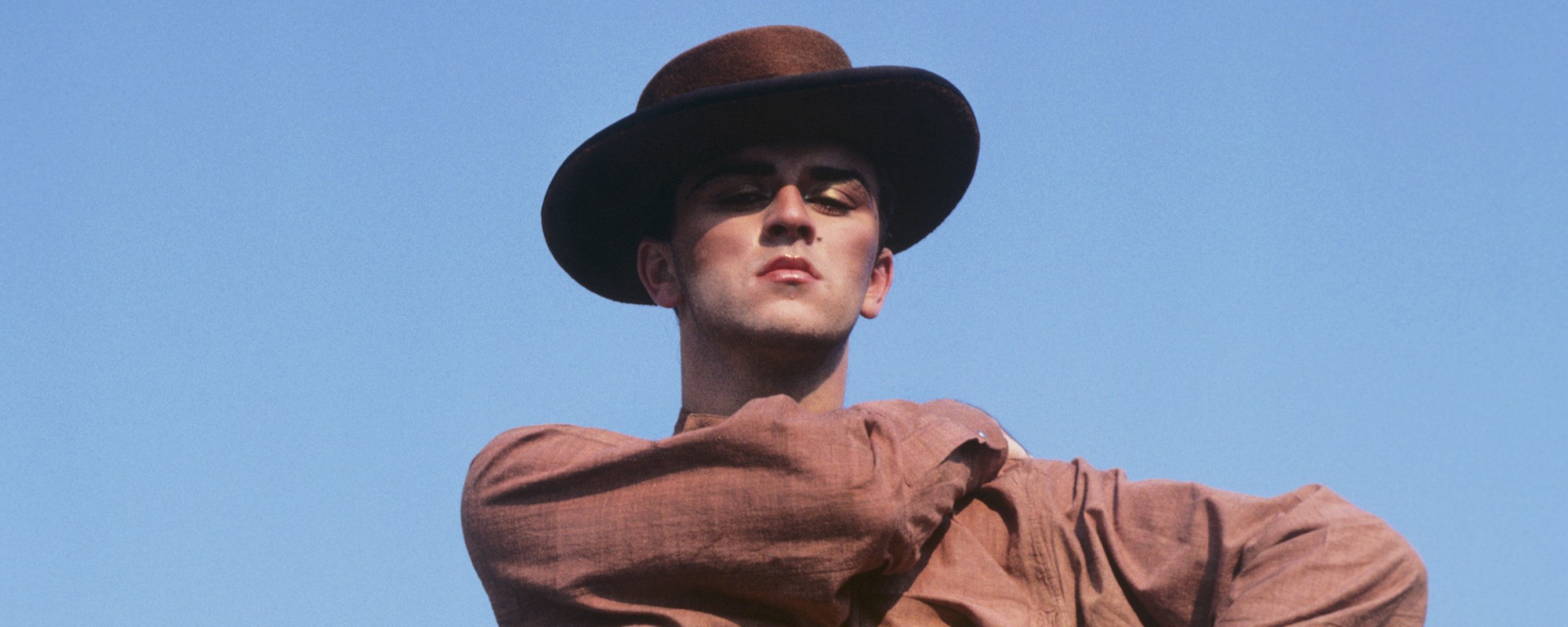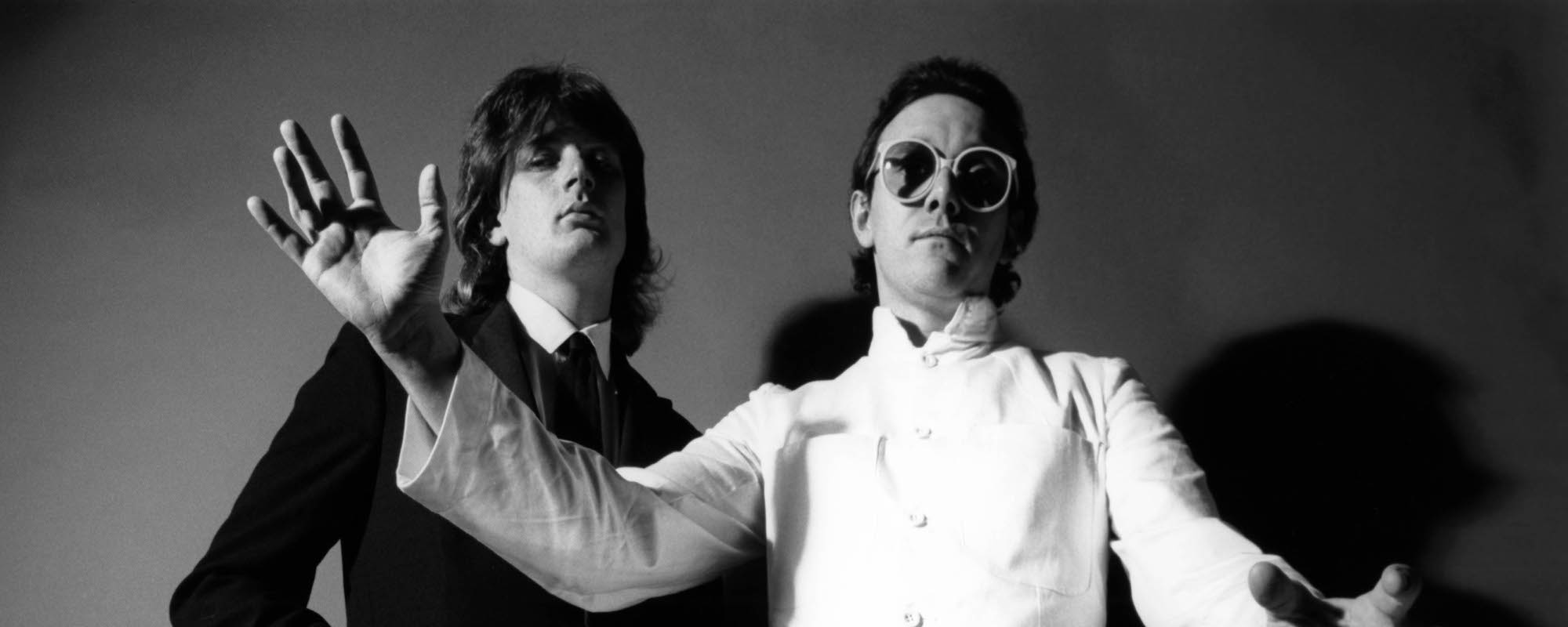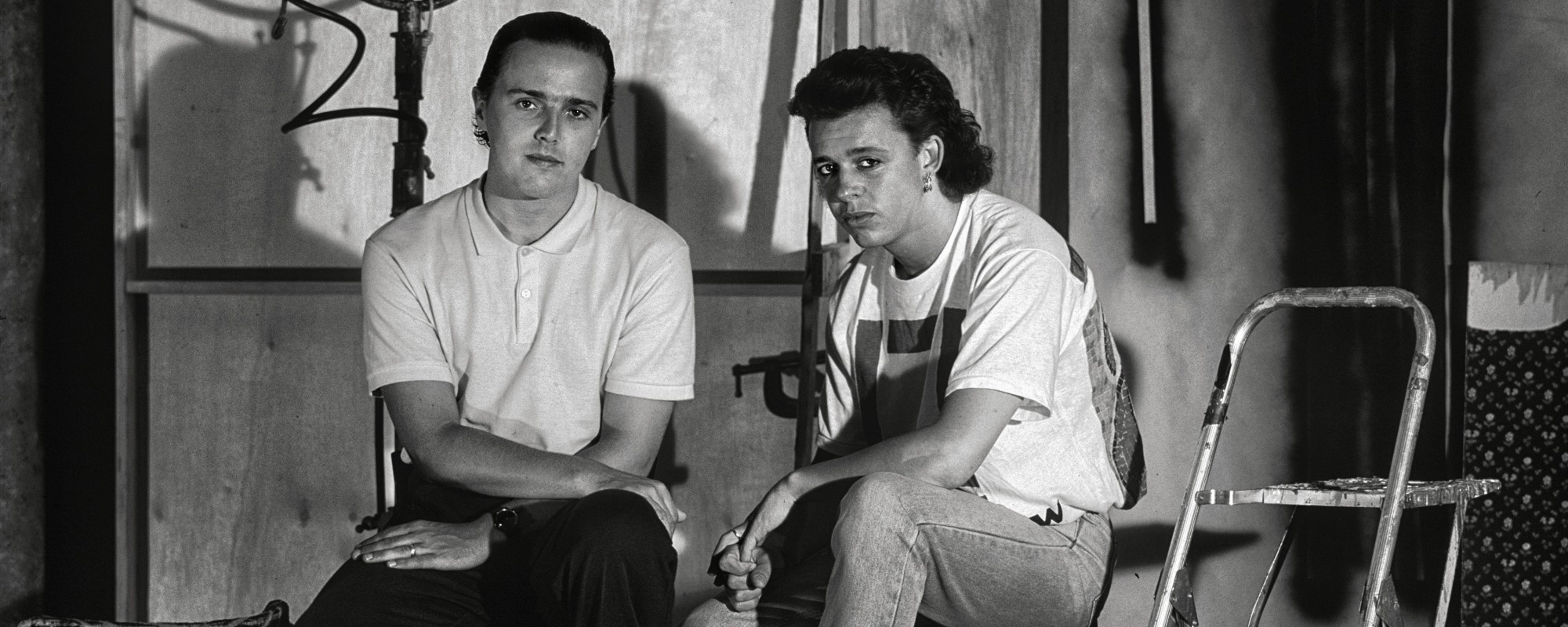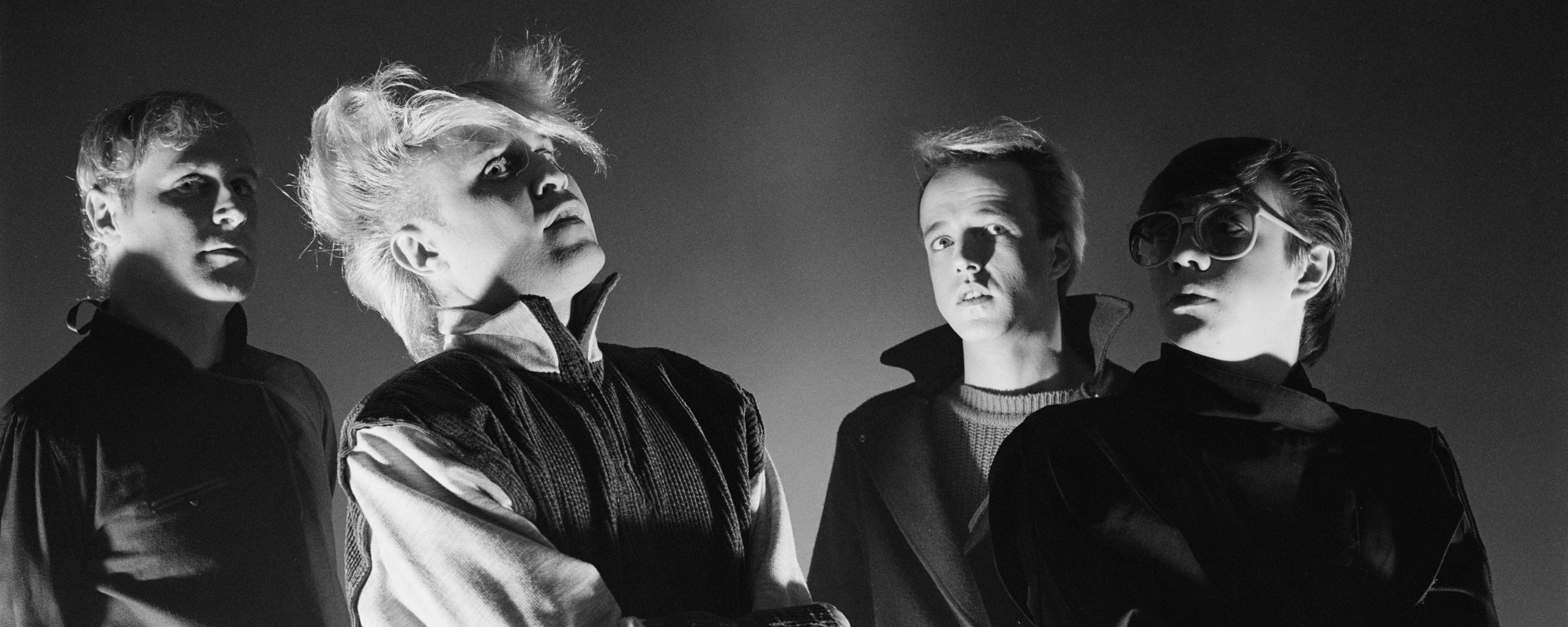Radiohead took their name from a Talking Heads song. It’s track six on their 1986 album True Stories, composed for David Byrne’s comedy film of the same name.
Videos by American Songwriter
Band names are essential, though it’s tough to quantify how much a name contributes to a group’s success. Still, there’s a parallel universe where a band called On a Friday appears beside album titles like OK Computer and Kid A.
Perhaps nothing would have changed. However, aesthetics influence how we receive information. Perception is what Byrne had in mind for “Radio Head” (the song).
This is the meaning behind “Radio Head” and how Byrne rescued the Oxford quintet from their teenage band name.
Incoming Call
“Radio Head” is about receiving information. Lyrically, it follows a character who is eager to absorb good news. But it’s also about how people use messages to interpret their surroundings.
Baby, your mind is a radio
Got a receiver inside my head
Baby, I’m tuned to your wavelength
Let me tell you what it says
True Stories takes place in a small, fictional Texas town filled with strange characters celebrating the 150th anniversary of the state’s independence. They meet for a local parade and talent show.
Tito Larriva portrays Ramon, who sings “Radio Head” in the film. Ramon works at a computer factory and becomes convinced radio signals are sending messages to him.
Transmitter
Oh, picking up something good
Hey, radio head
The sound of a brand-new world
The Sound of a Brand-New Band
The members of Radiohead formed in 1985 at Abingdon School in Oxfordshire, England. They called themselves On a Friday. However, the band became a part-time pursuit when everyone but guitarist Jonny Greenwood left for college. (Greenwood was two years younger than his brother Colin, who plays bass, and singer Thom Yorke.)
In 1991, On a Friday regrouped and after a chance meeting between Colin Greenwood and EMI’s Keith Wozencroft, they signed a record contract. EMI suggested the name change.
According to Yorke, the Talking Heads song “sums up all these things about receiving stuff,” adding, “It’s about the way you take information in, the way you respond to the environment you’re put in.”
Radiohead’s breakthrough hit “Creep” benefitted from the popularity of America’s ’90s alternative music scene. The song’s quiet verse and loud chorus arrangement owe a debt to the Pixies, and bands like Bush (“Comedown”) and Weezer (“Say It Ain’t So”) found massive success with it, too. Meanwhile, Nirvana had already introduced Pixies’ song method to mainstream audiences with “Smells Like Teen Spirit.”
If you were a guitar band in the early ’90s, you’d have a better chance at a record deal by writing songs using this format. Radiohead quickly evolved and redefined the boundaries of what a rock and roll band could sound like.
It’s Only a Name
Good band names are incredibly difficult to come by. Some, like The Rolling Stones, The Velvet Underground, and Sonic Youth, are objectively great. Others earn respect only after a group’s success.
The Beatles are the greatest band in history, but if you formed a group today and suggested The Beetles—but we’ll spell it like a musical beat—your bandmates would rightfully shun you from future suggestions.
Moreover, imagine Pearl Jam as Mookie Blaylock or a band with fighting brothers from Manchester called Rain (instead of Oasis). Coldplay was Starfish until a classmate rejected the name for his own band. (It comes from a poetry book by Philip Horky called Child’s Reflections, Cold Play.)
John Bongiovi, Jr. called his band Bon Jovi because of Van Halen—simple, clean, with a single (“Runaway”) also driven by keyboards (“Jump”).
Radiohead announced their name change in Curfew, an Oxford music magazine. The advertisement read: “On a Friday have changed their name to Radiohead. First E.P. out in April.”
“Social” Media
“Radio Head” is a song about receiving information, and Thom Yorke resonated with both the name and the song’s communication metaphor.
Radiohead’s masterpiece OK Computer resulted from Yorke’s anxiety over fast-moving technology and alienation, among other things. The album appeared in 1997, and think of how things have transformed into a reality of near-total connectivity and increased isolation.
Today, messages travel faster and farther, and the signals are often noisy. Yorke named his band after a Talking Heads song, then wrote “Paranoid Android.” In his epic, he asked a simple question: What’s that?
When you purchase through links on our site, we may earn an affiliate commission.
Photo by Michael Ochs Archives/Getty Images













Leave a Reply
Only members can comment. Become a member. Already a member? Log in.